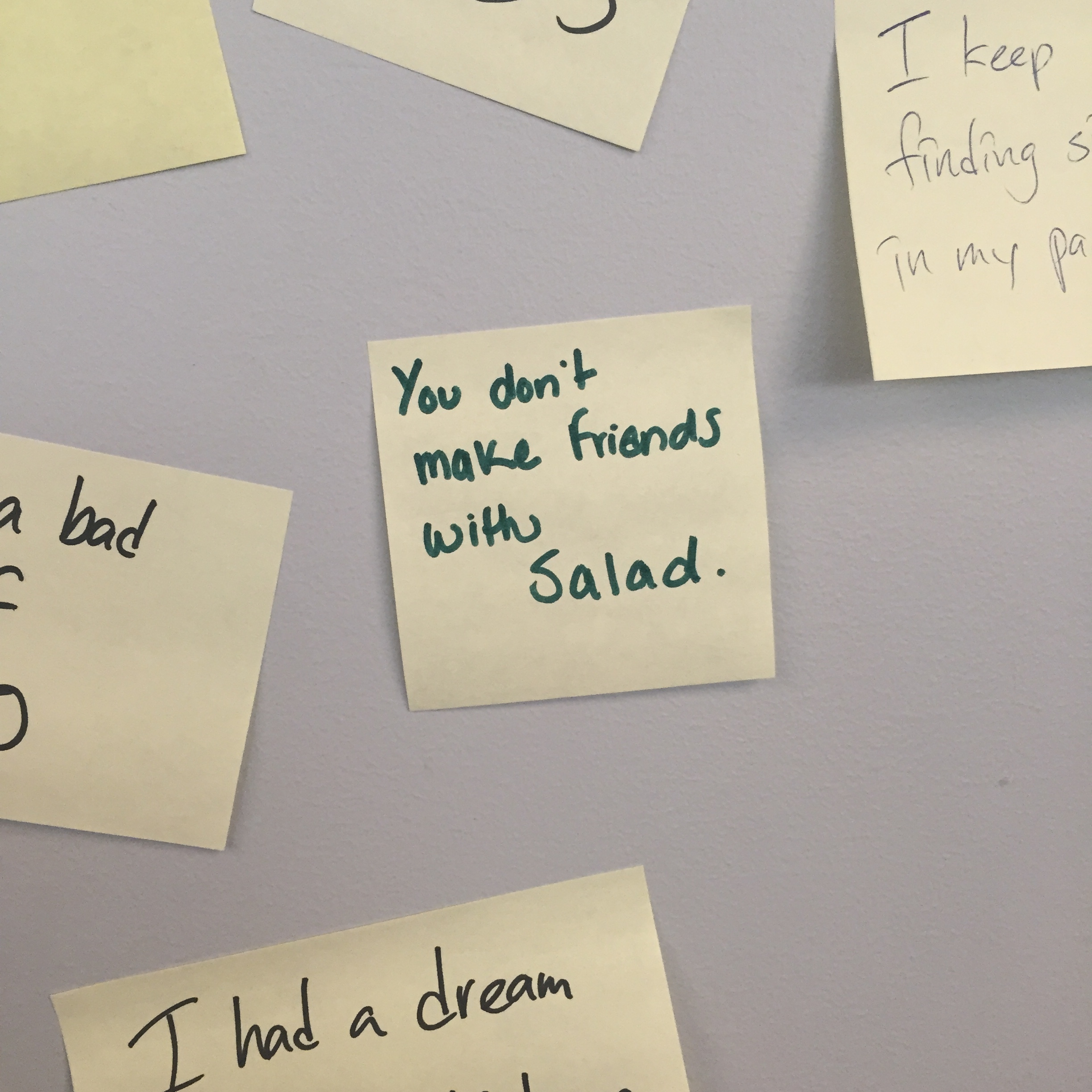Not being evangelical anymore is a surreal experience, because being evangelical used to define everything about who I was. I was taught in those vulnerable days of my life that my identity was in Christ above all else, that if I was ever doubting my purpose or worth as a human being, I had to remember that I was, first and foremost, a daughter of the King.
In a lot of ways, I wasn’t supposed to feel too bad about too much.
This teaching about identity was, as everything else in fundamentalist belief, meant to be all encompassing. My interests could never be more than interests, because my passion had to be Jesus. No book I was studying in school could be taken that seriously, as nothing other than the Bible was allowed to be considered transformative. It didn’t matter how much I loved singing or writing or acting, or how much I cared about another person, including my future spouse and children. I had to love God more. I had to be willing to sacrifice everything for him and his church.
I was told that by giving up my life, I would find it. But after seven years in the faith, that simply cost too much, and I did the most shameful thing a person can do in evangelicalism. I left it.
I would, of course, love to say that after leaving the church, I got my life paid back to me in full. I’d love to tell you that there’s some refund policy involved in all this. As many of you who also left know, there isn’t, and I’ve found that I’ve continued to pay in some ways for the loss of identity I experienced—for the amount of myself that I gave up to retain my place in that community.
*
There are moments when the values I used to have flood back into my mind, and I feel like I’m watching myself from outside my own body. The person I used to be is suddenly there again, and she can’t believe I’m living the way I am now—that I’m doing the things I’m doing, that I “gave up” on God like that.
My chest leaps and my mind spins and I feel frozen, like I’ve been caught, like everything I’m doing is a secret that’s been exposed. It happens in intimate moments, from sex to merely cuddling with my partner. It happens when I’m brushing my teeth and I look at the apartment around me and remember that I share it with someone I’m not married to. It happens when I’m making my bed or sending an email or walking to work with a coffee in my hand.
Its presence is completely unpredictable, but what happens is always the same. Everything stops and the evangelical I used to be suddenly rears her head, and I can feel her horror and disappointment. I can feel how sad she is that I’ve turned out the way I have.
My reaction, at first, is always emotional paralyzation. I lose control and can’t move, like a deer in headlights, because something really fast is coming at me and I can’t think to do anything about it. Then I feel panicked, like I’m in a bad dream that I need to wake up from, like I’m doing something terribly wrong because I’m being mind-controlled by aliens and I need to run out their spaceship.
I’ll either start sobbing or get very still and quiet, distant in the eyes of people around me. Depending on the moment it’s happening in, I have varying degrees of being able to hide it.
And then I come back, the person I am now. I’m either fully back in a matter of seconds, or slowly over the course of a few minutes. I shake off the feeling, like a cat that’s been rained on, and I go on with my life after having, what feels like, a bizarre out-of-body panic attack.
When I told my therapist about these episodes, they used a term I had never heard before: emotional hijacking. They said that it happens as a result of trauma, when the stress and suffering of what you once went through re-emerges as a result of your brain processing it.
The term hijacking resonated with me most. I feel like my emotions and, in some ways, my body are being stolen from me in those moments. I feel violated in all the ways I didn’t allow myself to during my time in the church. I feel the anger and heartache that I swallowed coming up from the depths of my heart. I feel all the negatives that I don’t want to, that I never asked to feel.
I never asked for any of this. And yet, it hasn’t ended yet. I keep going through it, and I’m not sure it will ever really stop. I can only hope it will continue to get less frequent.
*
There is no silver lining that I want put on this. The idea that any of this is a good thing, that it has some holy purpose, makes me mad—potentially because I automatically associate beliefs like that to making excuses for the totalitarian God I used to worship.
Rather, I think that understanding is what I desire. I want to understand how I was taken advantage of at the age of nineteen by a fundamentalist cult. I want to understand how it continues to affect me, all these years later, and why I’m still somewhat afraid of it—why I still feel like I need to hide from it.
Understanding, I think, can lead itself to justice. And since I can’t take what happened back, I’d rather spend my time trying to figure out all the ways it works so that we can, one day, see it destroyed.
